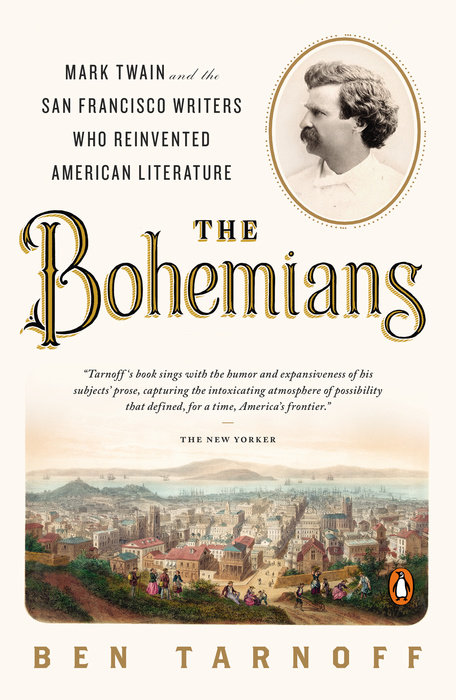It’s hard to imagine a profession less suited to Twain’s personality than daily journalism. Four decades later he still shuddered at the memory of its “soulless drudgery.” Satisfying his nightly quota caused him endless suffering: it was “awful slavery for a lazy man,” he recalled. Worse, the Call wanted him to report facts. At the Enterprise he had enjoyed wide latitude with the truth, roaming freely. At the Call he strained against a much shorter leash. He was no longer “Mark Twain,” but an anonymous hack, churning out unsigned items for each morning’s edition. To console himself, he employed a few tricks from his Enterprise days. He managed some mild hoaxing, and sparked a feud with a rival reporter at the Alta California named Albert S. Evans, who christened Twain the “sage-brush Bohemian.” But Twain couldn’t antagonize everyone equally. Certain targets were off limits. After seeing a pack of thugs throwing stones at a Chinese laundryman, he wrote an angry account of the incident—only to have it killed by his editor. “He said that the Call was like the New York Sun of that day,” Twain remembered. “It gathered its livelihood from the poor and must respect their prejudices or perish.” The Irish read the Call, and despised the Chinese. The paper couldn’t afford to offend them.
Discouraged, Twain almost abandoned writing altogether. A friend who recalled running into him during his Call days said he planned to leave California and resume his career as a steamboat pilot. The Mississippi meant freedom: an “unfettered and entirely independent” existence, plus a generous salary. His friend begged him to reconsider. “You have a style of writing that is fresh and original and is bound to be popular,” he said. “If you don’t like the treadmill work of a newspaper man, strike up higher.”
Twain took the advice to heart. If he had put down his pen in 1864, he would have been rapidly forgotten. He might be vilified for his hoaxes or admired for his cleverness, but sooner or later his name would fade, along with the other minor-league wits who enlivened the era’s newspapers. Instead, he stayed in San Francisco and struck up higher. It would be a rocky ascent. The city humbled him often. It pushed him to the brink of bankruptcy and suicide, and inspired moments of difficult soul-searching. But in the process he grew more profound, more perceptive. His satire became more socially astute. His humor developed a lacerating moral edge.
